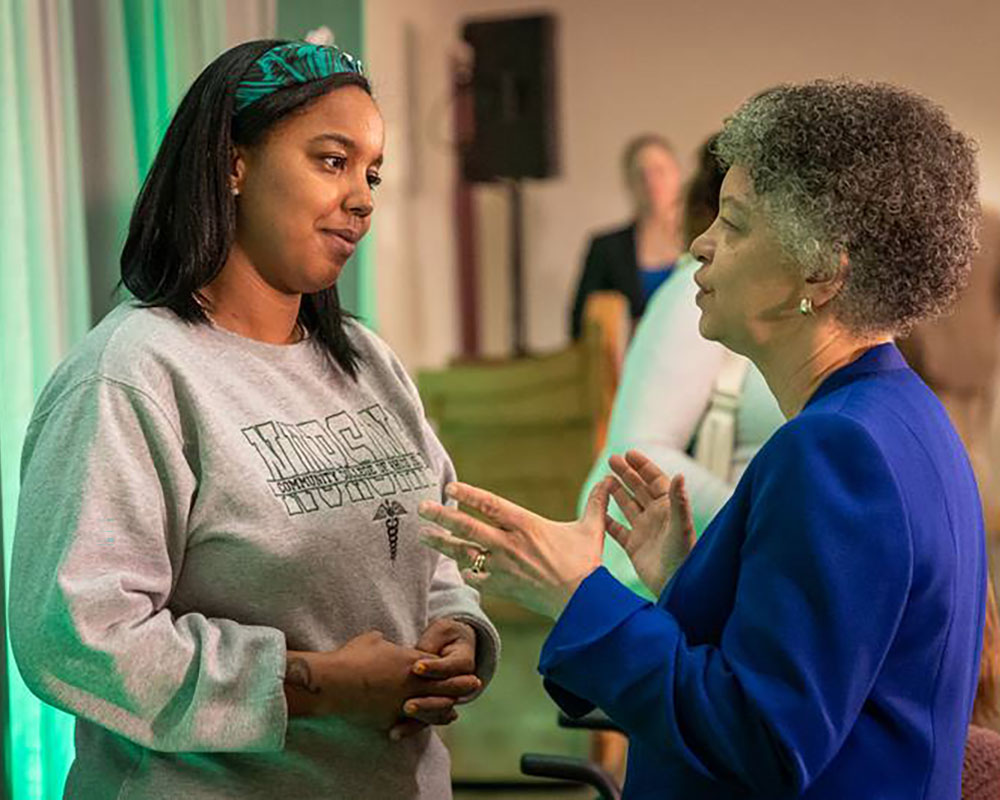Editor’s Note: Federal Reserve Bank of Boston President Susan M. Collins’ visit last week to a community college provides some insight into the Fed’s thinking about the role of community colleges, such as Northern Essex Community College, in the larger economy.
By Jay Lindsay, Federal Reserve Bank of Boston
The first college visit of Federal Reserve Bank of Boston President Susan M. Collins’ tenure came last Thursday at a community college—a choice she said she made to highlight the economic importance of such schools.
Collins’ visit to Community College of Rhode Island in Warwick came about 11 months after she began as president and CEO of the Boston Fed.
“It’s really essential to me that our economy does provide opportunities for everyone, not just for some,” she said told the students. “That makes community colleges like CCRI really important in the higher education landscape.”
Collins—a former university professor, dean and provost—said she’s been asked recently to speak at numerous educational institutions. But she said she wanted to start at a community college, where students are typically more diverse in age and socioeconomic level.
“Community college students especially really exemplify working hard, juggling so many different kinds of responsibilities, while developing additional skills that enable them – enable you – to contribute to the economy,” she said.
Since she began at the Fed, Collins has made it a point to visit communities, leaders and organizations throughout the six New England states. She says they give her a grassroots view of economic conditions that data can’t capture.
Following her remarks Thursday, Collins had a “fireside chat” with CCRI president Meghan Hughes, during which she also answered questions from students. Later, she met with Rhode Island business and nonprofit leaders for a lunchtime discussion hosted by Hughes.
A theme for Collins was that the investments CCRI students were making in themselves also benefitted the broader economy.
“I have so much respect for all of you who are here, who are working so hard to broaden your skills,” she said during her remarks. “You’re building a more prosperous future for yourselves, but also for our economy to work for all of us.”
During the lunchtime discussion, several of the dozen participants told Collins about difficulties finding workers. Dr. Michael Wagner, CEO of the hospital network Care New England, said the system has struggled to keep up staffing levels for nurses after a recent nursing exodus. Health care executive John Fernandez, of the hospital systems group Lifespan, reported a similar problem: “We have endless job openings,” he said.
“I think a couple places we should focus on … is how we train people so we can get them in school, out of school, into a job faster,” Fernandez said.
Collins said the hiring difficulties are part of what life looks like in a tight labor market. She noted Rhode Island’s unemployment rate was a scant 3%.
“That is an environment in which it’s really challenging for many employers,” she said.
David Ortiz, head of market affairs for offshore wind developer Orsted, said his company has no problem finding workers. Instead, it’s focusing on attracting and training people in the skills it needs. For instance, one program – to be run at CCRI – will offer training for operations work.
“We’re responding to the demands of our communities,” Ortiz said.

